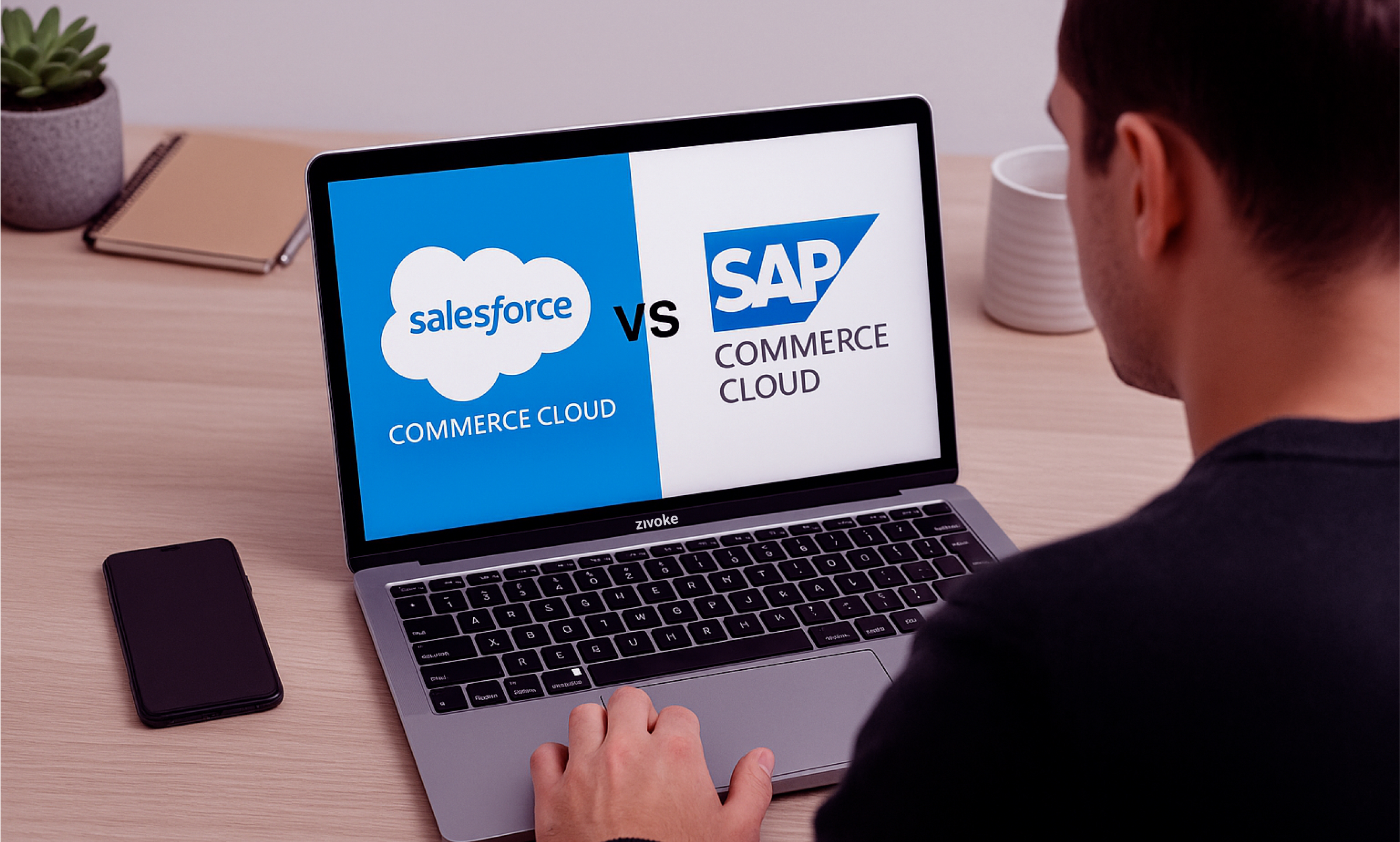SAP Commerce Cloud vs. Salesforce Commerce Cloud: Choosing the Right E-commerce Platform for Your Business
In the world of e-commerce, two robust platforms dominate the landscape: SAP Commerce Cloud (formerly known as Hybris) and Salesforce Commerce Cloud (formerly known as Demandware). Both platforms were acquired by their respective parent companies to bolster their digital and physical retail footprints, but their approaches and features differ significantly.
History and Acquisition
SAP Commerce Cloud was once known as Hybris, a leader in the e-commerce space before being acquired by SAP in 2013. Hybris’ robust features and market dominance earned it a spot as a leader in Gartner’s Magic Quadrant for Digital Commerce.
Salesforce Commerce Cloud, previously Demandware, was acquired by Salesforce in 2016. The acquisition allowed Salesforce to integrate Demandware’s e-commerce capabilities with its existing suite of products, such as CRM, CPQ (Configure Price Quote), and more, providing a comprehensive view of a website’s visitor and enhancing the sales journey.
B2C and B2B E-commerce Capabilities
Both platforms cater to two key aspects of e-commerce:
B2C (Business-to-Consumer) E-commerce – The visible online shopping experience, where customers browse products, make purchases, and interact with the website.
B2B (Business-to-Business) E-commerce – Behind the scenes, where vendors, suppliers, and businesses engage in bulk ordering, payments, logistics, and more.
Both platforms excel in these areas but have distinct advantages depending on the type of business.
Key Features
SAP Commerce Cloud stands out with its extensive focus on B2B e-commerce, offering functionalities like bulk ordering, pricing management, multi-contract management, and the ability to deliver to different addresses.
Salesforce Commerce Cloud, on the other hand, integrates AI-powered personalization through Einstein AI. This feature enhances the customer journey by offering predictive sorting and personalized shopping experiences. It tracks the purchasing cycle, consumer behavior, and product selection to recommend upselling and cross-selling opportunities.
Salesforce has also added CloudCraze (acquired in 2018) to strengthen its B2B capabilities, offering business buyers a personalized, intelligent shopping experience across all channels—mobile, social, in-store, and digital.
Admin Interface: User-Friendly or Complex?
When it comes to managing day-to-day activities, Salesforce Commerce Cloud has a clear advantage. Its user-friendly admin interface allows platform operators to efficiently navigate the system, saving significant time and reducing the learning curve. A study shows that 64% of users abandon software they find complex, which makes Salesforce’s ease of use a major selling point.
In contrast, SAP Commerce Cloud offers robust functionality but often requires specialized knowledge to operate effectively, making it less intuitive for users who are not familiar with the platform.
Pricing Models: Subscription vs. Revenue Share
SAP Commerce Cloud operates on a subscription-based pricing model and charges based on the number of parallel users on the site during peak times.
Salesforce Commerce Cloud uses a revenue-sharing model. As the revenue grows, the percentage paid to Salesforce reduces, making it an attractive option for businesses scaling their operations.
Available Features and Add-Ons
Not all features are available in the base version of Salesforce Commerce Cloud. Add-ons like Commerce Cloud Order Management and Commerce Cloud Endless Aisle provide additional functionalities that enhance the overall shopping experience.
Which Platform Is Right for You?
When choosing between SAP Commerce Cloud and Salesforce Commerce Cloud, two crucial questions arise:
Are you already a SAP shop?
If your organization is heavily invested in SAP products, SAP Commerce Cloud might be the more natural choice. While integrating it with other systems is possible, it could become complex over time.
What are your team’s strengths?
If your team is already experienced with Salesforce, Salesforce Commerce Cloud will be easier to integrate and maintain. If your team is accustomed to SAP’s environment, SAP Commerce Cloud might be a better fit.
Consultation and Expert Guidance
For retailers seeking to elevate their e-commerce operations, it’s advisable to consult a local partner who can assess your unique needs and recommend the right platform. Certified Salesforce Commerce Cloud Consultants at Zivoke have the expertise to evaluate your environment and suggest the best platform based on your business’s specific requirements.
In conclusion, while both SAP Commerce Cloud and Salesforce Commerce Cloud offer robust functionalities, the decision between the two comes down to factors such as existing infrastructure, team expertise, and long-term scalability. By partnering with an experienced consultant, you can make a well-informed choice that will help your business thrive in the competitive e-commerce landscape.



